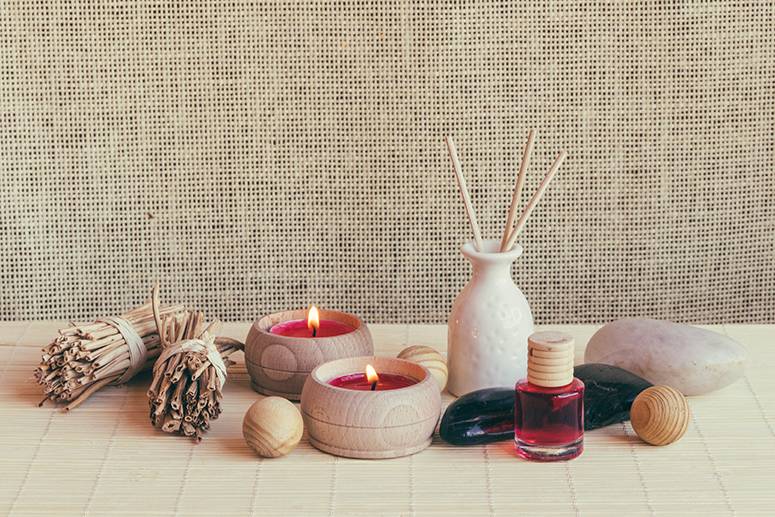Creating your own Zen space
In the past few weeks, we have discussed ways to recover from the joyful yet stressful holiday feasting and partying. We talked about staying away from sugar for two weeks and abstaining from alcohol for 30 days.
Those are simple ways to allow your body to recover. How about calming your nerves and soothing your mind? What is a simple way to address that?
We need a quiet space, a meditation nook, or a Zen garden (or den)! We always need a corner to retreat. A place where we can temporarily shut off noisy kids or nosy housemates. A part of the home (or office) where we can breathe and let our guards down.

When you hear the word Zen, you think of peace, relaxation, and meditation. You cannot dive into it without being aware of your issues or stress triggers. We cannot completely eradicate stress, but we can successfully manage it.
It is important to retreat into your own Zen space to recharge because running around like an Energizer bunny may result in burnout. Short timeouts during the day to breathe and close your eyes, shutting down the noises, may just be the burnout antidote.
If you are lucky enough to have a spare room to create a Zen space then that would be the best. However, a mere corner or designated quiet space will do. The quiet space, which can be indoors or outdoors, can be used by the whole family on an individual basis—never as a group.
Blues and greens
What relaxes you? If nature and plants or sunlight bring you joy then a porch, patio, garden bench, or a sunroom can be your go-to-place when stressed out.

or porch can offer the daily dose of therapy to soothe one’s nerves.
If you are not an outdoor person, then look for a space indoors. The space has to have light or muted colors (instead of bright and loud). Highly consider hues of blues and greens (the sky and the ground) since experts say these are calming colors.
Keep the space orderly, with minimal decor, and definitely clutter-free. Always add a few items that spark joy in you. You don’t need to add every piece of wall decor you own to your meditation area.
One thing you should consider adding is flower pots or plants. Nature is healing, they say. So if the outdoors is not for you, then bring a piece of the outdoors inside instead. Fresh plants help clean the air and create a positive aura, according to feng shui.

clarity not confusion, serenity not chaos.
Candles and scents
Choose your favorite soothing scents, whether in the form of a scent diffuser, room spray, or scented candles. Many are calmed by lavender but there are so many scents to choose from. Lavender helps calm those with anxiety.
Jasmine is another popular aromatherapy scent. Jasmine oil is often used to help people sleep better, relieve stress, or even treat depression.

Vanilla is another great choice for relaxation. Studies show that vanilla has therapeutic effects on stress and anxiety. Lemongrass can calm and help induce sleep. The popular llang-ylang produces a sweet, fruity scent. It’s a scent that is calming, relaxing, and not too overpowering.
Rose, a calming scent, is great for getting rid of headaches and fatigue. For many centuries, rose essential oil has been used as a remedy for anxiety, depression, and insomnia.
Soft pillows, soothing music
Some can sit on a pillow or on a soft carpet, and easily quiet themselves down with breathing techniques or the use of a mantra. While others may need some soft ambient music like instrumentals to set the mood for relaxation. If you prefer meaningful soft lyrics, then go ahead and listen to them.

also quiet down by playing the guitar or piano.
If reading the Bible or your favorite book grounds you, then curl yourself up on an oversized chair with soft throw pillows and a soft blanket. Comfort your body with softness as you nurture your brain with knowledge, clarity, and optimism.
I am sure you already know the colors, accessories, and furniture you need to create a place of peace and tranquility in your home. You know yourself more than others. No one can tell you what will quell your tense emotions. Next time you feel frazzled, excuse yourself and run to your Zen cave!


